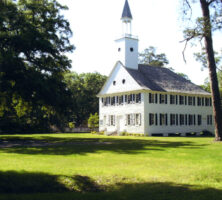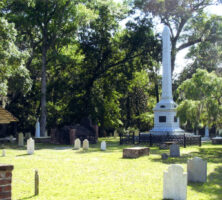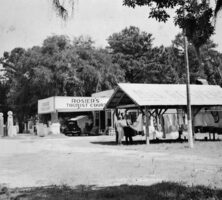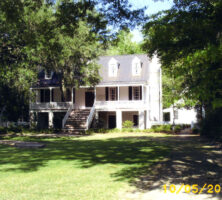Midway, located in Liberty County on Highway 17 between Savannah and Darien, has a long and distinguished history. The community was founded by English Puritans, who migrated to St. John’s Parish, Georgia, from Dorchester, South Carolina, in 1752, and established two settlements: a new Dorchester and another nearby settlement, which became the much more prominent Midway community.
The Midway colonists received sizeable land grants in St. John’s Parish primarily because the colonial officials wanted a large number of settlers there to protect them from the Creek Indians. These first settlers were soon joined by families from England, Scotland, and South Carolina, and in 1754 they founded the Midway Society, a Congregationalist group in which Christianity and daily living were closely interrelated. The first permanent meetinghouse was erected in 1756, and the first service was held in 1758.

The Midway settlers developed a strong, agriculturally based economy. Their wealth came from the cultivation of rice, indigo, and other crops.
These settlers held strong political opinions and took an early stand for independence. In May 1775 a St. John’s Parish resident, Lyman Hall, was sent as a delegate to the Continental Congress. A year later Hall and another St. John’s Parish man, Button Gwinnett, along with George Walton of Augusta, signed the Declaration of Independence. In 1777, as a result of this strong support for independence, St. John’s Parish combined with St. Andrew’s and St. James’s parishes to become Liberty County.

Historic landmarks include the Midway Congregational Church and Cemetery. The early Midway church building was destroyed during the Revolutionary War (1775-83). The present church building was completed in 1792 and has not been modernized. The Midway Museum is Georgia’s only colonial museum. The Midway Society conducts an annual service every April commemorating the town’s settlement.
According to the 2020 census figures, the population of Midway was 2,141.












